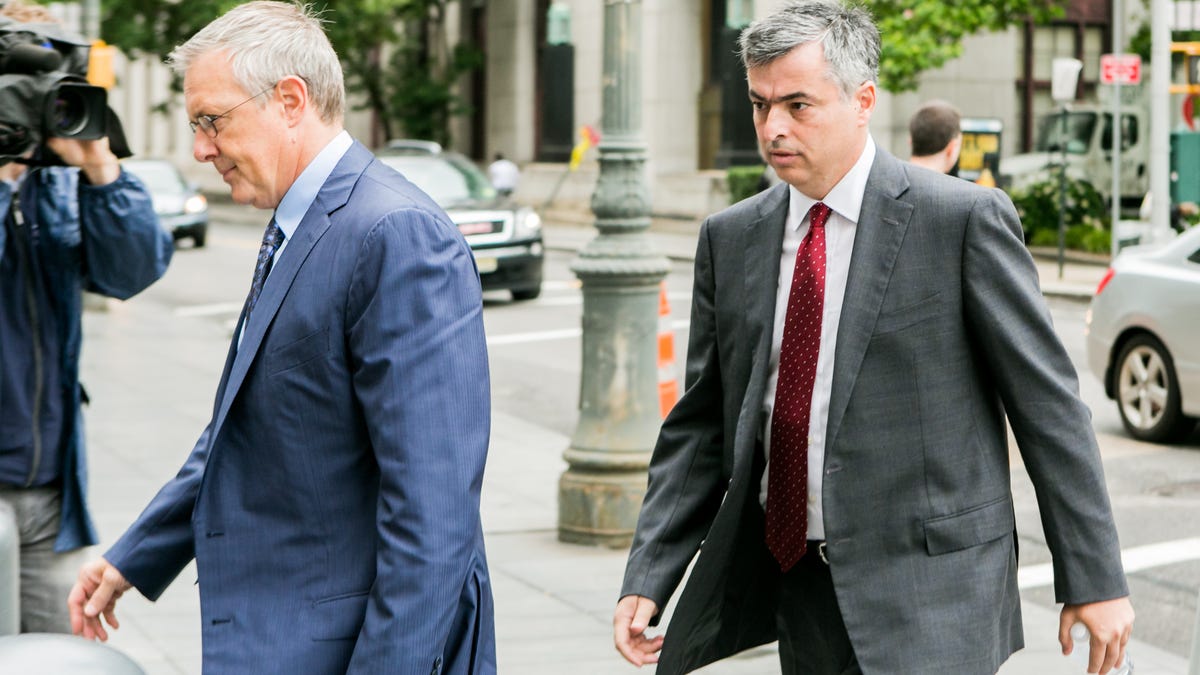Apple's Eddy Cue: Steve Jobs was confused in his e-mails
The Apple executive refutes DOJ claims that Jobs wanted Apple to force e-book publishers to change their sales terms with Amazon.

Eddy Cue, Apple's senior vice president of software and services, testified that he never received an email from Jobs that said publishers would have to change their e-book sales terms with Amazon in order to reach an agreement with Apple. Cue said he didn't receive any of the four other drafts of the message, either.
Furthermore, Cue said there's no way Jobs meant what he wrote because Cue told him such a plan was already off the table. He added that had Jobs sent the e-mail, he would have corrected him.
"As he was writing this, he [probably] got confused," Cue said. "I believe he said forget it, this doesn't make sense," which is why Jobs ultimately never sent the message.
"I'm 100 percent positive that's what happened," Cue said. "Steve would never have sent an e-mail if he wasn't sure."
The U.S. Department of Justice in week two of the trial presented an e-mail from Jobs that it said showed Apple required publishers to change their contracts with Amazon. Known as the "smoking gun" e-mail, it directly implicated Jobs and established his intent to change the business. In the message, Jobs responded to price tiers suggested by Cue:
"I can live with this, as long as they move Amazon to the agent model too for new releases for the first year. If they don't, I'm not sure we can be competitive..."
"I can live with this as long as they also agree to the other things you told me you can get: The retail price they will set for any book will be the LOWER of the applicable 'iTunes' price below OR the lowest wholesale price they offer the book at to anyone else, with our wholesale price being 70% of such price."
"Time stamps don't always tell what the latest draft was," Cue said. He noted that people could have multiple windows open, and just because they closed one last, it would have the most recent time stamp even if it wasn't the most recent draft.
However, Judge Denise Cote, in questioning Cue, got him to admit he had no reason to doubt the time stamps didn't indicate the actual order Jobs was drafting the message. The last message according to the time stamp also was the only one with Jobs' signature at the end.
"You probably don't want to see those five documents again," she joked as she asked Cue about the messages the DOJ had repeatedly questioned Cue about.
"There's just zero chance of that," Cue said. "It's what I did for a living. I lived it night and day. ... He's confused about it because it's not clear if it's a wholesale, retail agency, non-agency. That's why he never sent the e-mails to me."
At issue in the DOJ's case against Apple is whether or not the Cupertino, Calif., electronics giant forced publishers to change their deal terms with other retailers, such as Amazon. The Justice Department, which initially sued Apple and a handful of the nation's largest publishers over a year ago, contends that Apple forced publishers to move to an agency model, in which publishers set the prices, and away from the traditional wholesale business, which typically results in lower prices for the consumer.
Apple's initial proposal sent to publishers on January 4 and 5 of 2010 said publishers working with Apple had to move all retailers to agency. But Cue testified during his two days on the stand that he quickly abandoned that idea as it wouldn't guarantee Apple would have the lowest prices. Amazon or another retailer still could reach better agency deal terms with the publishers that could establish lower maximum prices, and Apple had no way to enforce that requirement.
"What we wanted was to get competitive pricing," Cue said. "Having everyone go to agency is not something I can force."
Instead, Apple pursued a price-matching provision in all of its deals that meant it didn't care what other retailers did. That provision, known as a most-favored nation or MFN clause, would allow it to always meet the lowest prices in the market, no matter if the retailer was on an agency or wholesale model.
Cue is the highest-ranking Apple executive to testify during the trial. The Justice Department has portrayed Cue as the "chief ringleader of the conspiracy" to control e-book pricing, and said his testimony would show Apple colluded with the publishers to boost digital book prices and hurt rivals such as Amazon. Conversely, Apple's attorneys are counting on Cue to reinforce their defense that Apple's actions simply were standard negotiation tactics.
The two sides have been making their arguments in court during the three-week trial. Cue testified over the past couple days, and the DOJ rested its case following his testimony Monday. Closing arguments are scheduled for Thursday.

